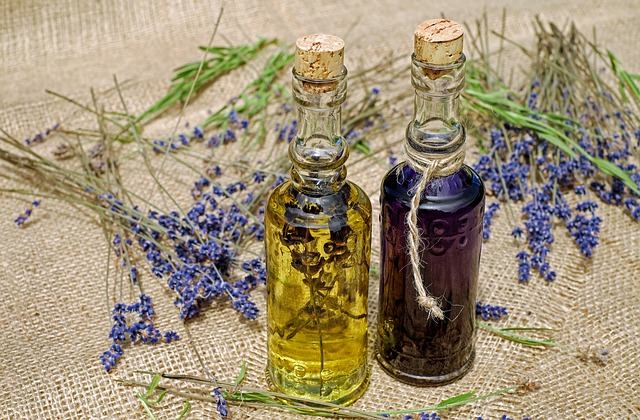 Aromatherapy is the use of the aromas of the essential oils from plants, along with massage, to cause physiological changes. For example, aromatherapy oils have been shown to cause relaxation or stimulation of humans and animals. This likely relates to volatile chemicals within the aromas of the essential oils that cause pharmacological changes to the consumer. Further, massage has been shown to elicit relaxation in humans and animals. As aromatherapy has been shown to have relaxing effects, it stands to reason that they may be effective as a treatment for anxiety or depression. A number of studies have investigated the effects of aromatherapy on mood disorders and generally results have suggested that they have beneficial effects. For example in one study, researchers gave fortnightly 40 min aromatherapy massages to a group of individuals and found that after 12 weeks the anxiety and depression in the subjects had been reduced significantly in comparison to a group that received massages but no essential oils.
Aromatherapy is the use of the aromas of the essential oils from plants, along with massage, to cause physiological changes. For example, aromatherapy oils have been shown to cause relaxation or stimulation of humans and animals. This likely relates to volatile chemicals within the aromas of the essential oils that cause pharmacological changes to the consumer. Further, massage has been shown to elicit relaxation in humans and animals. As aromatherapy has been shown to have relaxing effects, it stands to reason that they may be effective as a treatment for anxiety or depression. A number of studies have investigated the effects of aromatherapy on mood disorders and generally results have suggested that they have beneficial effects. For example in one study, researchers gave fortnightly 40 min aromatherapy massages to a group of individuals and found that after 12 weeks the anxiety and depression in the subjects had been reduced significantly in comparison to a group that received massages but no essential oils.

The essential oils most often used in this study were bergamot (Citrus bergamia), lemon (Citrus limon), clary sage (Salvia sclarea), lavender (Lavandula angustifolia), roman chamomile (Chamaemelum nobile), geranium (Pelargonium graveolens), rose otto (Rosa damascena) sandalwood (Santalum album) and jasmine (Jasminum officinalis). Many of these plants have been shown to be effective against anxiety and depression due to the phytochemicals they contain, both within the essential oils and within other plant tissues.
Eat Well, Stay Healthy, Protect Yourself
RdB
